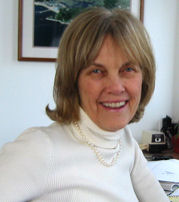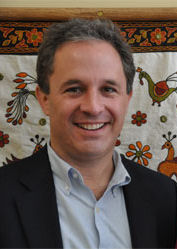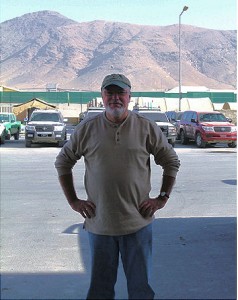Ed is a native of nearby Wilton who has an avid interest in local history and has developed a lecture, and in-depth tour of the scenes of battle of the 1777 Danbury Raid. Ed first became interested in the Danbury Raid as a child when he learned his neighbor’s house was partially burned by the British during the raid. He and his wife are fascinated by history and have visited many battlefields both here and abroad.
 It was the spring of 1777, and the Royal Governor of the Province of New York, Major General William Tryon, was not a happy man. In 1775-76, the British had been mauled, and forced to flee Boston. Their commander, General Thomas Gage, had been sent home in disgrace. In the summer and fall of 1776, British forces under Admiral Sir Richard Howe and General William Howe defeated General George Washington in the Battle of Brooklyn but had somehow failed to “close the deal,” allowing Washington to escape and humiliate the Hessians in Trenton. This “rabble uprising” was clearly getting out of hand.
It was the spring of 1777, and the Royal Governor of the Province of New York, Major General William Tryon, was not a happy man. In 1775-76, the British had been mauled, and forced to flee Boston. Their commander, General Thomas Gage, had been sent home in disgrace. In the summer and fall of 1776, British forces under Admiral Sir Richard Howe and General William Howe defeated General George Washington in the Battle of Brooklyn but had somehow failed to “close the deal,” allowing Washington to escape and humiliate the Hessians in Trenton. This “rabble uprising” was clearly getting out of hand.
Tryon, who had previously put down significant colonial unrest as governor of North Carolina, found his New York supply line to be in peril. Fodder was not to be found, and Hessian reinforcements had arrived poorly armed and without tents. Housing was scarce in New York City as a result of the mysterious great fire that followed the Battle of Brooklyn. But Tryon was a man of action. The rebels had supplies and lots of tents in Danbury, Connecticut, a colony with known loyalist sympathy. He would lead a raid and seize what he needed, but he was determined not repeat the mistakes of The Lexington/Concord Raid. He demanded detailed military planning, 1,500 experienced troops, diversionary actions against Peekskill, and, most important, to be guided by the 300 man Royal and Honorary Prince of Wales Loyal American Volunteers, which had been largely raised in Fairfield County. His force would be led by locals, who knew the roads and the political sympathies of their neighbors.
 On April 25, 1777, Tryon’s forces landed between Fairfield and Norwalk (in what is now Westport) at Compo Beach, and marched to Danbury where they chased off a small garrison of Continental Army troops. But Tryon found that “inland citizens” were not quite as loyal to the Crown as he had assumed (he had made this same mistake in North Carolina). And, by chance, Brigadier General Benedict Arnold of the Continental Army, was nearby, in route to complain to Congress about his perceived poor treatment. On hearing of the British landing, Arnold gathered volunteers and “rode to the guns.” Major General David Wooster, commander of the Militia in the area, was also in New Haven, and he joined with Brigadier General Gold Selleck Silliman’s local militia, and, with a combined force of roughly 700 men, the Patriots responded vigorously. In the face of this action Tryon abandoned his plan to seize the supplies, and instead burnt them before marching to Ridgefield.
On April 25, 1777, Tryon’s forces landed between Fairfield and Norwalk (in what is now Westport) at Compo Beach, and marched to Danbury where they chased off a small garrison of Continental Army troops. But Tryon found that “inland citizens” were not quite as loyal to the Crown as he had assumed (he had made this same mistake in North Carolina). And, by chance, Brigadier General Benedict Arnold of the Continental Army, was nearby, in route to complain to Congress about his perceived poor treatment. On hearing of the British landing, Arnold gathered volunteers and “rode to the guns.” Major General David Wooster, commander of the Militia in the area, was also in New Haven, and he joined with Brigadier General Gold Selleck Silliman’s local militia, and, with a combined force of roughly 700 men, the Patriots responded vigorously. In the face of this action Tryon abandoned his plan to seize the supplies, and instead burnt them before marching to Ridgefield.
A company led by Wooster attacked Tryon’s rear guard twice as he moved toward Ridgefield on April 27. In the second encounter, Wooster was mortally wounded and died five days later. The main encounter then took place at Ridgefield, where several hundred militia, under Arnold’s command, confronted the British. They were driven back in a running battle down the town’s main street, but not before inflicting casualties on the British and delaying their progress.
Additional militia forces arrived, and the next day they continued to harass the British on their return to Compo. Arnold’s troops regrouped to make a stand on Old Hill in today’s Westport, but they were outsmarted by the Loyal American Volunteers who helped the British flank their position. The British made a mad dash for their ships as Arnold’s troops pursued them before being scattered by British artillery fire and bayonet charge on Compo Hill.
The British had walked in, but had to fight their way out to Compo Beach where they had left their ships. They had burned rebel supplies and outwitted the Rebels by escaping destruction, but because of this action, American forces gained international esteem. Benedict Arnold, while tactically out-maneuvered, would receive his promotion to Major General and go on to the important victory at Saratoga. Without the “Danbury Raid” that critical battle might have ended quite differently.
The expedition was a tactical success for the British forces, but their actions galvanized Patriot support in Connecticut. While the British again made raids on Connecticut’s coastal communities, including a second raiding expedition by Tryon in 1779, and a 1781 raid led by Arnold after his defection to the British side, they made no more raids that penetrated into the countryside.

 George Bodenheimer, Executive Chairman of ESPN, is a veteran of over 30 years with the company. George cites mission, culture, and brand as the firm’s drivers for success.
George Bodenheimer, Executive Chairman of ESPN, is a veteran of over 30 years with the company. George cites mission, culture, and brand as the firm’s drivers for success.




 Robert J. Begiebing is the author of thirty articles and stories, a play, and six books, including an historical New England trilogy of novels spanning 1648-1850. His final novel in the trilogy, Rebecca Wentworth’s Distraction (UPNE, 2003), won the Langum Prize for historical fiction in 2003. The first novel in the trilogy, The Strange Death of Mistress Coffin (Algonquin, 1991, 1996), was chosen as a Main Selection for the Mystery and Literary Guild Book Clubs, has been optioned for a film, and is now available from the University Press of New England in a new 20th anniversary e-book and hard copy edition.
Robert J. Begiebing is the author of thirty articles and stories, a play, and six books, including an historical New England trilogy of novels spanning 1648-1850. His final novel in the trilogy, Rebecca Wentworth’s Distraction (UPNE, 2003), won the Langum Prize for historical fiction in 2003. The first novel in the trilogy, The Strange Death of Mistress Coffin (Algonquin, 1991, 1996), was chosen as a Main Selection for the Mystery and Literary Guild Book Clubs, has been optioned for a film, and is now available from the University Press of New England in a new 20th anniversary e-book and hard copy edition. Begiebing’s biographical novel about the great British landscape painter J.M.W. Turner. The Turner Erotica, explores the mysterious relationship between Turner’s secret life and work, and his public life and work, a mystery that Begiebing believes has yet to be fully explored or adequately explained.
Begiebing’s biographical novel about the great British landscape painter J.M.W. Turner. The Turner Erotica, explores the mysterious relationship between Turner’s secret life and work, and his public life and work, a mystery that Begiebing believes has yet to be fully explored or adequately explained. Francis Thomas “Fay” Vincent, Jr. (born May 29, 1938) is a former entertainment lawyer and sports executive who served as the eighth Commissioner of Major League Baseball from September 13, 1989 to September 7, 1992.
Francis Thomas “Fay” Vincent, Jr. (born May 29, 1938) is a former entertainment lawyer and sports executive who served as the eighth Commissioner of Major League Baseball from September 13, 1989 to September 7, 1992. David Walker, former Comptroller General in Washington D.C. will talk about the state of the Nation’s and Connecticut’s finances. According to Walker, the Government is too big as it is 24% of the economy, moving toward 37%.
David Walker, former Comptroller General in Washington D.C. will talk about the state of the Nation’s and Connecticut’s finances. According to Walker, the Government is too big as it is 24% of the economy, moving toward 37%.